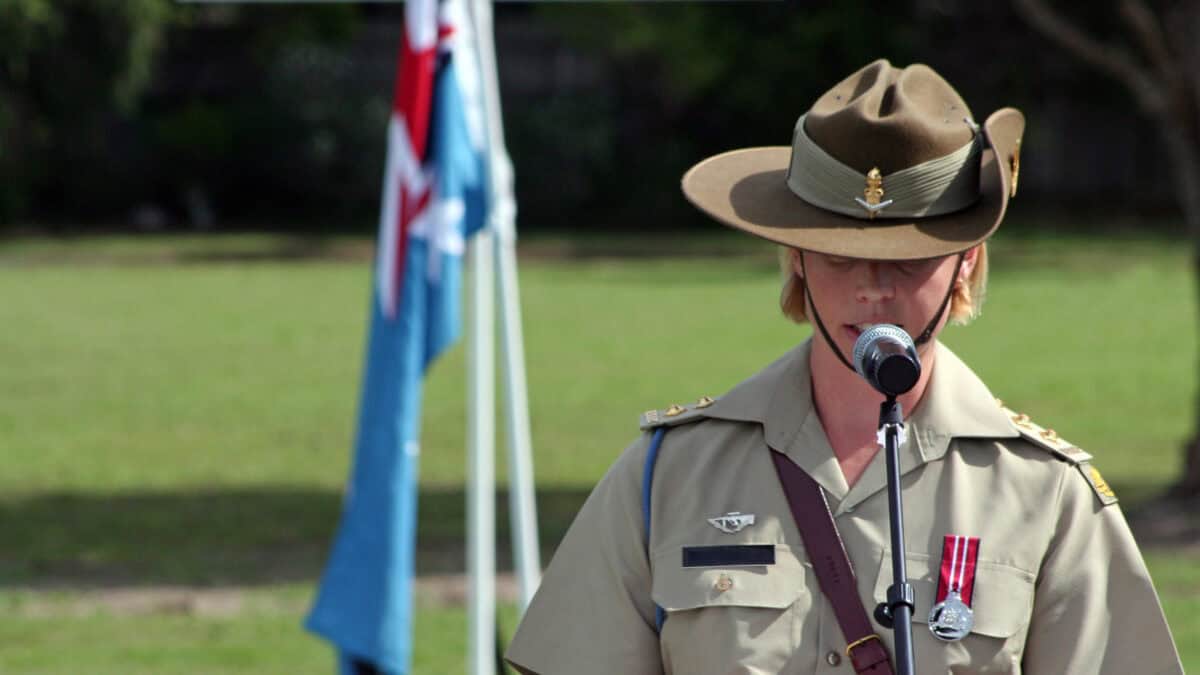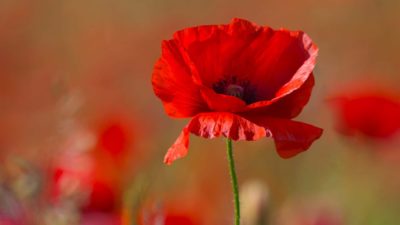
Image source: Getty Images
It is hard, now, to imagine the world of 1914.
International leisure travel was almost non-existent, news slowly trickled around the world on ships and via telegram, and motorised transport was rare.
We were barely teenagers, as a nation. Our federal parliament sat between Sydney and Melbourne, with the construction of Canberra having only just begun.
There were around 4.9 million people living in Australia at the time, two-thirds of whom were between 15 and 65 years old, and more than half of the workforce was engaged in primary industries or manufacturing.
It was from this country – recognisable but so different to today – that Australia (and New Zealand) sent troops, as loyal servants of the British Empire, to fight in a growing global conflict that would be initially known as The Great War.
Embarking in Albany, WA in November 1914, the ANZAC forces, as they became known, headed off into a world – and a conflict – that must have been entirely foreign to almost all of them. The soldiers first disembarked in Egypt, before many of them sailed for Gallipoli, landing on the beaches of what we now call ANZAC Cove 110 years ago, today.
The day which would mark Australia's first major military conflict as a nation, and the day which, thereafter, would be known as ANZAC Day – our preeminent day of remembrance.
And while it may be hard to imagine the world they came from, or for many of us, the horrors of the combat in which they soon found themselves engaged, that is what we must try to do, today.
As we meet at cenotaphs around the country as dawn breaks, we will contemplate the experiences of those ANZAC Diggers. We will remember those who served in the Boer War before the turn of the last century, and those who wore our uniform in the wars and armed conflicts, since.
The War To End All Wars was, tragically, misnamed. Two short decades later, the world would again be at war, and Australian soldiers, sailors and airmen would see service in Europe, Asia and the Pacific.
And then in Korea, Malaya, Vietnam, Iraq and Afghanistan. In peacekeeping missions in East Timor and the Solomon Islands and elsewhere around the world.
Our soldiers, sailors and aviators have willingly donned the uniform of their branches and their country, and have diligently and selflessly served, often risking all. Many, tragically, lost their lives in that service, or suffered injuries, seen and unseen, that left them permanently changed.
Some were professional soldiers. Some joined up because they were asked to. Others were conscripted. They came from all walks of life. They were sons, daughters, fathers and mothers. They had jobs, hopes, and dreams.
They put those things aside, because Australia asked them to.
We asked them to put themselves in harm's way. And they did.
They did their duty; faithfully and completely.
And on this 110th anniversary of the landing of ANZAC forces at Gallipoli, we will do our duty.
This morning at Dawn Services, and throughout the day at ANZAC marches in cities, towns and suburbs spanning the length and breadth of Australia, we will remember them.
We will honour the fallen. We will pay tribute to those who did not return. And we will acknowledge those who did return, carrying the mental and physical scars of their service.
We will remember.
They went with songs to the battle, they were young,
Straight of limb, true of eyes, steady and aglow,
They were staunch to the end against odds uncounted,
They fell with their faces to the foe.
They shall grow not old, as we that are left grow old:
Age shall not weary them, nor the years condemn
At the going down of the sun and in the morning
We will remember them.
Lest We Forget.




